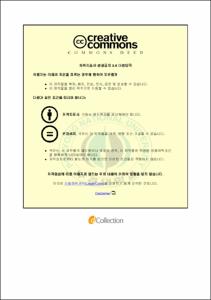어머니의 거부적 양육태도와 유아의 공격성 관계에서 언어능력과 정서지능의 매개 및 조절효과
- Abstract
- Mediating and Moderating the effects of child's verbal ability, emotional intelligence on the relations between maternal parenting attitude and child's aggression.
Cho Chae Yun
Early Childhood Education Major
Graduate School of General
Pukyong National University
Abstract
In this study, in order to improve the understanding about the aggression of the child, the relationship between child language skills and emotional intelligence, and mother's rejective rearing attitude was studied. I tried to provide the basic data for the development of educational programs for young children showing aggressive behavior in daily life and the basic data for the education of their parents through this study.
The research objects of this study were 200 young children of 5~6 years(111 boys, 89 girls) attending to 8 early childhood education institutions located in Busan and their mother, 200 people, and 18 their teachers.
To measure the child aggression, Yeon Hee-Kwon(1990)'s measure was used and the measure is the adaptation of Preschool Behavior Scale Teacher Form (PSBS; Crick et al., 1990). And to examine the language ability of child, vocabulary test of K-WPPSI (Korean Wechsler Preschool and Primary Scale of Intelligence) was used. In addition, to measure the emotional intelligence of child, some questions from "rating scale of child emotional intelligence for teachers (It was developed by GyonHee-Kim(1998), and used by SeHwa-Yoon(2008))" were used. In addition, to examine mother's rejective rearing attitude, only "Rejection" from HyeJeong-Hwang(1997)'s adaptation of Parental Acceptance-Rejection Questionnaire (PARQ) was used.
As a way to analyze the data, Technical Statistics for each variable and Pearson's product-moment correlation coefficient were calculated, and t-test by sex was performed. In addition, Hierarchical Regression Analyses was performed to investigate the intervention effect of emotional intelligence and mediator effect of language skills about the relationship between mother's rejective rearing attitudes and child aggression.
The results of this study are as follows.
First, if child has high emotional intelligence, his relational aggression and outward aggression were low. And if child language skill is high his outward aggression was low, while child language skill had nothing to do with relational aggression. In addition, if mother shows rejective rearing attitude, child relational aggression and outward aggression were high.
Second, if mother shows rejective rearing attitude and child emotional intelligence is low, child relational aggression and outward aggression were high. On the other hand, if child emotional intelligence is high, child relational aggression was low. In other words, child emotional intelligence mitigated negative effects of mother's rejective rearing attitude and child relational aggression.
- Issued Date
- 2014
- Awarded Date
- 2014. 2
- Type
- Dissertation
- Publisher
- 부경대학교
- Affiliation
- 대학원
- Department
- 대학원 유아교육학과
- Advisor
- 권연희
- Table Of Contents
- 목 차
Ⅰ. 서 론 1
1. 연구의 필요성 및 목적 1
2. 연구문제 8
3. 용어정의 9
Ⅱ. 이론적 배경 11
1. 유아의 공격성 11
1) 공격성의 개념 11
2) 공격성의 유형 12
2. 유아의 공격성과 관련된 변인 14
1) 어머니의 양육태도 14
2) 유아의 정서지능 17
3) 유아의 언어능력 19
Ⅲ. 연구 방법 23
1. 연구 대상 23
2. 연구 도구 24
3. 연구 절차 28
4. 자료 분석 29
Ⅳ. 연구 결과 31
1. 유아의 공격성에 대한 어머니의 거부적 양육태도 및 유
아의 정서지능, 언어능력과의 관계 32
2. 어머니의 거부적 양육태도가 유아의 외현적 및 관계적 공
격성에 미치는 영향에 대한 정서지능의 중재효과 33
1) 어머니의 거부적 양육태도가 유아의 외현적 공격성에
미치는 영향에 대한 정서지능의 중재효과 34
2) 어머니의 거부적 양육태도가 유아의 관계적 공격성에
미치는 영향에 대한 정서지능의 중재효과 35
3. 어머니의 거부적 양육태도와 유아의 공격성 간의 관계에
대한 언어능력의 매개효과 38
Ⅴ. 논의 및 결론 40
1. 논의 40
2. 결론 45
47
61
- Degree
- Master
- Files in This Item:
-
-
Download
 어머니의 거부적 양육태도와 유아의 공격성 관계에서 언어능력과 정서지능의 매개 및 조절효과.pdf
기타 데이터 / 980.96 kB / Adobe PDF
어머니의 거부적 양육태도와 유아의 공격성 관계에서 언어능력과 정서지능의 매개 및 조절효과.pdf
기타 데이터 / 980.96 kB / Adobe PDF
-
Items in Repository are protected by copyright, with all rights reserved, unless otherwise indicated.